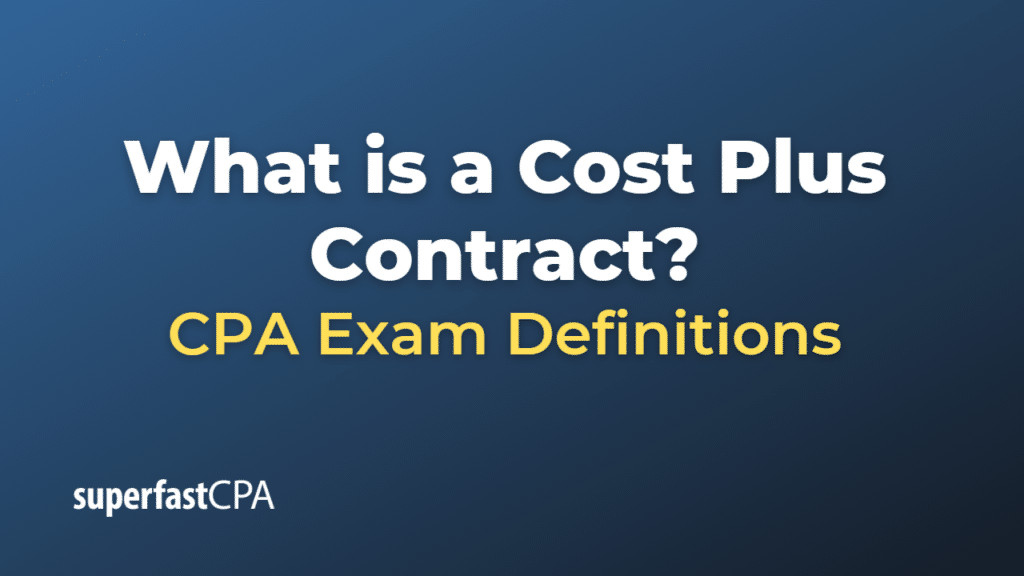Cost Plus Contract
A cost-plus contract is a type of contract where a contractor is paid for all of its allowed expenses to a set limit plus additional payment to allow for a profit. The client agrees to cover the complete cost of the work, regardless of how much the project ultimately costs. These contracts are commonly used when it’s difficult to estimate the total project cost due to uncertainties in the project scope.
There are several types of cost-plus contracts:
- Cost Plus Fixed Fee (CPFF): The contractor is reimbursed for all allowable costs plus a fixed fee that doesn’t vary with the cost performance of the contractor.
- Cost Plus Incentive Fee (CPIF): The contractor is reimbursed for all allowable costs and receives a predetermined incentive fee if defined objectives related to cost, schedule, or technical performance are met.
- Cost Plus Award Fee (CPAF): The contractor is reimbursed for all allowable costs, and the majority of the fee is earned based on the satisfaction of certain broad, subjective performance criteria defined and rated by the client.
- Cost Plus Percentage of Cost (CPPC): The contractor is reimbursed for all allowable costs and receives a fee that varies based on a percentage of the costs. This type is generally discouraged or even prohibited because it provides no incentive for the contractor to control costs.
While cost-plus contracts reduce risk for contractors, they can present a risk to clients because total costs may end up being higher than initially estimated. Hence, these types of contracts require a high degree of oversight and administration to ensure that costs are controlled, necessary work is completed, and quality standards are met.
Example of a Cost Plus Contract
Let’s consider an example of a Cost Plus Fixed Fee (CPFF) contract:
Let’s say a city government is planning to build a new library. Because the project is unique and has some uncertainties around it, the city decides to use a cost-plus contract to hire a construction firm.
The construction firm estimates that the project will cost about $5 million in materials, labor, and other direct costs. They negotiate a fixed fee of $500,000 for their profit.
Under the terms of the CPFF contract, the city agrees to reimburse the construction firm for all its costs, up to $5 million, and to pay the $500,000 fee.
If the construction firm manages to complete the project for only $4.8 million, they still receive their $500,000 fee, and the city ends up paying a total of $5.3 million.
However, if complications arise and the project ends up costing $5.5 million, the city has to cover these additional costs. The construction firm still receives their $500,000 fee, so the city ends up paying a total of $6 million.
This example illustrates the primary characteristic of a cost-plus contract: the client, not the contractor, assumes the risk of the project costs exceeding the original estimate. The contractor is guaranteed their fee as long as they complete the project.













